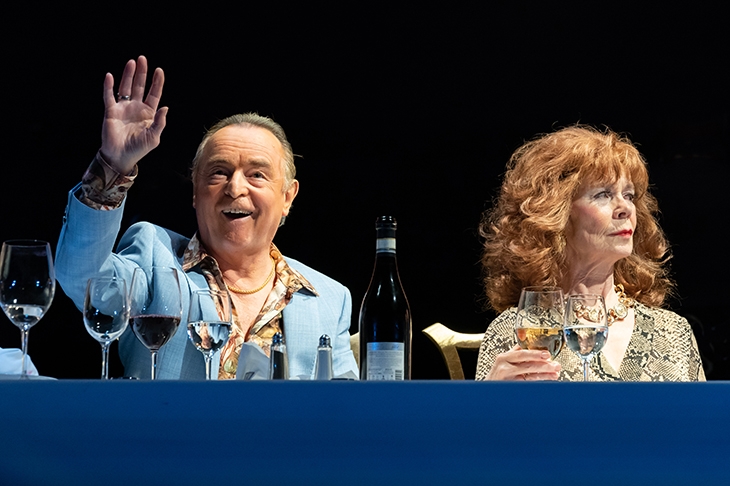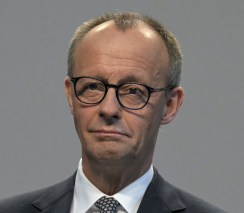The cast of Party Time includes John Simm, Celia Imrie, Ron Cook, Gary Kemp and other celebrities. They play a crew of posh thickos at a champagne party who chat away about private members’ clubs and adulterous affairs. In the background we hear of a ‘round-up’ involving the arrest and perhaps the murder of the government’s political foes. This is a short play with little spectacle, movement or psychological depth. Once the party-goers have been introduced, the script glazes over entirely. The actors form a line at the front of the stage, like glammed-up waxworks, and take turns at injecting their speeches with irony and humour in the hope of prompting laughs from their fans in the stalls. It’s more a talent competition than a play. And a clear winner emerges: Celia Imrie.
Pinter is making the rather obvious point that the intelligence services in a mature society are not open to the same level of scrutiny as a food inspectorate or a vehicle licensing authority. He does this by likening Britain to a kleptocracy where Bollinger-glugging toffs hang around in gilded mansions while undercover cops execute dissidents with impunity in hidden torture cells. It’s a point of view. But the script dates from 1991 when Britain’s security services were focusing on the IRA, who not only murdered civilians in the UK but also gloated publicly about their crimes, as if expecting a round of applause. To pretend that John Major’s Britain was indistinguishable from tsarist Russia is a facile self-indulgence rather than a serious study of political corruption.
The second half of the evening, Celebration, is another trifle with almost the same set-up. A group of chums meet, flirt and exchange gossip in an upmarket location. This time they’re in a swanky restaurant and the characters are rich cockneys rather than posh dimwits.









Comments
Join the debate for just £1 a month
Be part of the conversation with other Spectator readers by getting your first three months for £3.
UNLOCK ACCESS Just £1 a monthAlready a subscriber? Log in